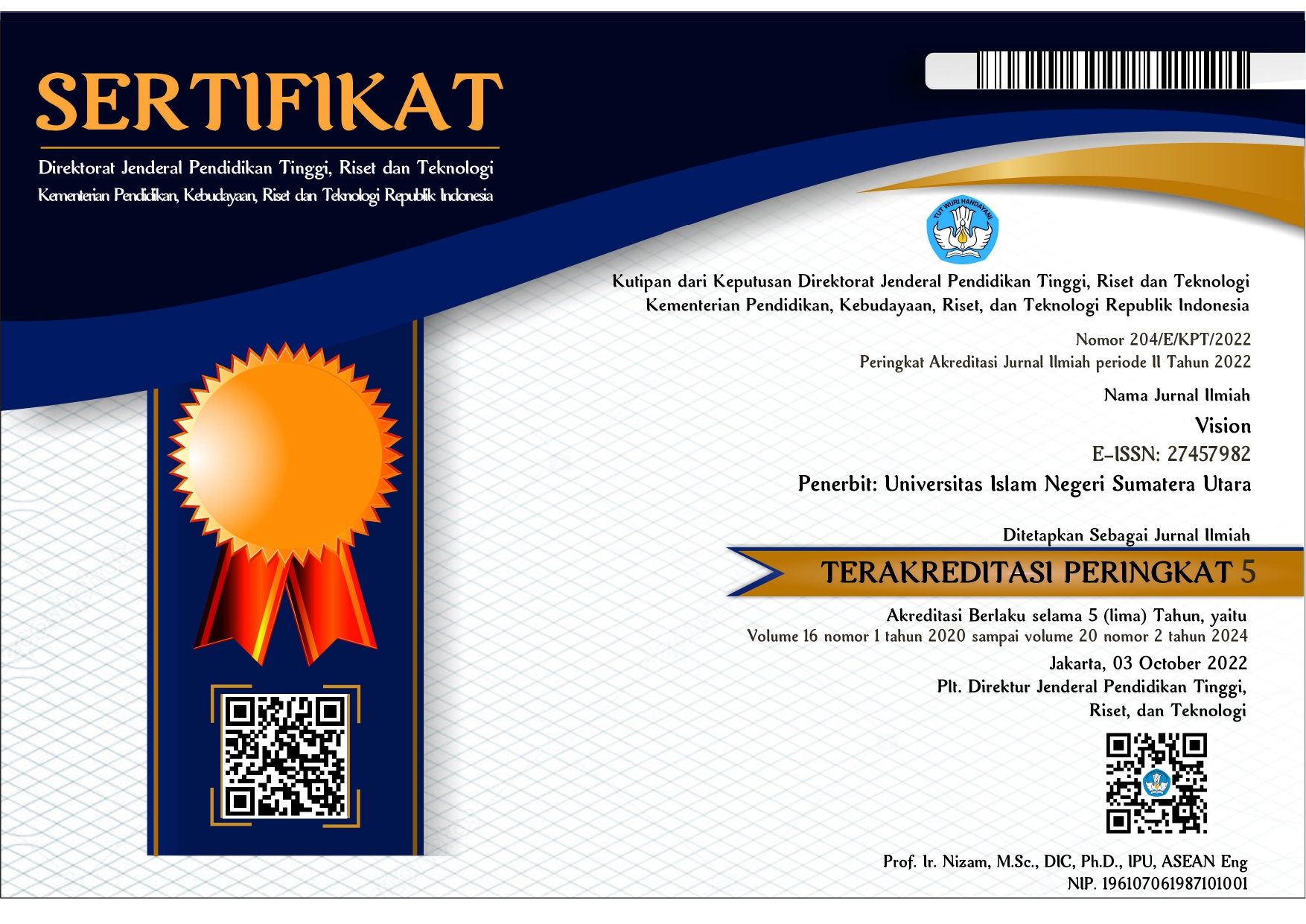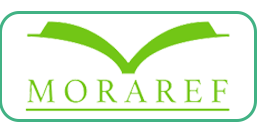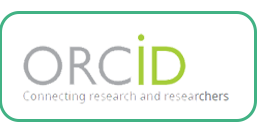PODCASTS AND STUDENT TEAMS ACHIEVEMENT DIVISIONS (STAD) TOWARDS EXTENSIVE LISTENING BY STUDENTS
Abstract
Based on the preliminary experiment the students were perplexed by the English sounds, they struggled with motivation, and they hoped the benefit their peers. The research objectives were: (1) to determine the influence of podcast and STAD combination on the students’ extensive listening; and (2) to determine the significant difference between students' extensive listening before and after teaching using the combination of podcast and STAD. A Quantitative quasi experimental method was used. The research instrument was in form of objective test. The researchers gathered the documentation from the teacher's notes, the syllabus, lesson plan, and student development report. This quantitative data analysis uses SPSS for Windows. The findings of the study: (1) the combination of podcasts and STAD was more effective than three phase techniques collaborated with teacher’s reading aloud; and (2) In terms of enhancing extensive listening, there is a significant difference in achievement scores before and after the treatment. Some students were excited about improving their listening skills by using podcasts. They could grasp the native speaker comprehensively as well as maximize their role among students.
Keywords
Full Text:
PDFReferences
Aldila, M., Tapilouw, F. S., & Sanjaya, Y. (2018). Students’ Cognitive and Attitude of Secondary School in Learning Global Warming using Student Team Achievement Division (STAD) based on Gender. Journal of Science Learning, 1(3), 104. https://doi.org/10.17509/jsl.v1i3.11793
Azis, A. R., & Puspitasari, E. (2019). Book Review Podcasting in the Implementation of Extensive Reading: Exploring the Students’ Benefits. Journal of Foreign Language Teaching & Learning, 4(1). https://doi.org/https://doi.org/10.18196/ftl.4136
Boy Jon, R., Embong, R., Purnama, B., & Safar Wadi, A. (2021). The Challenges of English Language Teaching in Indonesia. International Journal of English and Applied Linguistics (IJEAL), 1(3), 158–168. https://doi.org/10.47709/ijeal.v1i3.1157
Chang, A., Millett, S., & Renandya, W. A. (2018). Developing Listening Fluency through Supported Extensive Listening Practice. https://doi.org/10.1177/0033688217751468
Dianithi, A. S. (2017). Journal of Education Action Research (Vol. 1, Issue 1).
Feezel, J. (2018). The Evolution of Communication Pedagogy. Journal of Communication Pedagogy, 1(1), 3–8. https://doi.org/10.31446/jcp.2018.02
Gavenila, E. I., Wulandari, M., & Renandya, W. A. (2021). Using TED talks for extensive listening. Pasaa, 61(June), 147–175.
Ghozali Imam. 2016. (2018). Aplikasi Analisis Multivariate dengan Program IBM SPSS 19. Badan Universitas Diponegoro. In E-Jurnal Akuntansi (Vol. 22, p. 1).
GÖNÜLAL, T. (2020). Improving Listening Skills with Extensive Listening Using Podcasts and Vodcasts. International Journal of Contemporary Educational Research. https://doi.org/10.33200/ijcer.685196
Hufron, A., & Trisanti, N. (2016). English digital talking books as media to teach narrative writing. ELT Forum, 5(2), 326938. https://doi.org/10.15294/elt.v5i2.11230
Ifedayo, A. E., Ziden, A. A., & Ismail, A. B. (2021). Podcast acceptance for pedagogy: the levels and significant influences. Heliyon, 7(3), e06442. https://doi.org/10.1016/j.heliyon.2021.e06442
Ivone, F. M., & Renandya, W. A. (2019). Extensive listening and viewing in ELT. Teflin Journal, 30(2), 237–256. https://doi.org/10.15639/teflinjournal.v30i2/237-256
Kavaliauskiene, G. (2019). Podcasting: A Tool for Improving Listening Skills. The Journal of Teaching English with Technology (TEwT), 8(4), 1–17. http://www.tewtjournal.org/VOL%5Cn8/ISSUE%5Cn4/A%5CnWORD%5CnFROM%5CnA%5CnTECHIE.pdf
Kıymaz, M. S., & Doyumğaç, İ. (2020). Consistency of the Narrative Texts Written by Middle School Students and Their Textual Creation Levels. Educational Policy Analysis and Strategic Research, 15(3), 207–232. https://doi.org/10.29329/epasr.2020.270.10
Koçak, A., & Alagözlü, N. (2021). The Effect of Learner Podcasts on EFL Students ’ Speaking Development Recommended Citations : The Effect of Learner Podcasts on EFL Students ’ Speaking Development. The Journal of Language Teaching and Learning, 11(2), 18–41.
Le, T. Van, & Pham, S. K. (2020). The effects of extensive listening on Vietnamese students’ listening skills. Indonesian TESOL Journal, 2(1), 1–14. https://doi.org/10.24256/itj.v2i1.1246
Madhawa, S. (2018). Effects of Utilizing The Stad Method ( Cooperative Learning Approach ) In Enhancing Students’ Descriptive Writing Skills Keyword s. 6(4), 239–252. https://doi.org/10.18488/journal.61.2018.64.239.252
Manalu, N. F., Widya, N., Tarigan, P., Sitopu, M. K., & Silaban, A. P. (2021). Improving Writing Skill of Narrative Text by Using Short Video at SMA Negeri 1 Silau Kahean. 9(2), 257–263.
Mustikasari, R. D. W. (2016). The Structure of Teacher’s Directives of the English Lecturers of Muhammadiyah University Semarang. Register Journal, 4(2), 154–170. https://doi.org/10.18326/rgt.v4i2.458
Palomino, M. del C. P. (2017). Teacher Training in the Use of ICT for Inclusion: Differences between Early Childhood and Primary Education. Procedia - Social and Behavioral Sciences, 237(June 2016), 144–149. https://doi.org/10.1016/j.sbspro.2017.02.055
Rahman, A., & Muktadir, G. (2021). SPSS : An Imperative Quantitative Data Analysis Tool for Social Science Research. November. https://doi.org/10.47772/IJRISS.2021.51012
Rahmatika, A. (2019). The effectiveness of student teams achievement division to teach writing viewed from students’ creativity. International Journal of Language Education, 3(1), 46–54. https://doi.org/10.26858/ijole.v1i1.6786
Richard, J. C., & Renandya, W. A. (2020). Methodology in language learning: An anthology of current teaching (J. C. Richards & W. A. Renandya (eds.)). Cambridge University Press.
Rosa, M. S., Fitriana, H., & Zulfiana, R. (2020). Teaching and Develop Pronunciation Using Media Podcast In Senior Highschool. LINGUA Jurnal Pendidikan Bahasa Fakultas Keguruan Dan Ilmu Pendidikan | Universitas Islam As-Syafi’iyah, 16(1), 24–35. https://doi.org/https://doi.org/10.34005/lingua.v16i1.847
Saeedakhtar, A., Haqju, R., & Rouhi, A. (2021). The impact of collaborative listening to podcasts on high school learners’ listening comprehension and vocabulary learning. System, 101, 102588. https://doi.org/10.1016/j.system.2021.102588
Şendağ, S., Gedik, N., & Toker, S. (2018). Impact of repetitive listening, listening-aid and podcast length on EFL podcast listening. Computers and Education, 125, 273–283. https://doi.org/10.1016/j.compedu.2018.06.019
Shafwati, D., Sholihah, L., Prakoso, G., & Riyantika, F. (2021). The Use of YouTube Video toward Students’ Listening Ability. 2013. https://doi.org/10.4108/eai.16-10-2020.2305198
Sharma, G. (2017). Pros and cons of different sampling techniques. 3(7), 749–752.
Shieh, G. (2019). Power Analysis and Sample Size Planning in ANCOVA Designs. Psychometrika, 1961. https://doi.org/10.1007/s11336-019-09692-3
Slavin, R. E. (1994). Cooperative learning: Theory, research, and practice.
Tsany, A. putri. (2021). The Implementation of Storynory Audiobook in Teaching Reading Narrative Text. Jurnal Pendidikan Indonesia, 7(7), 6.
Yoestara, M. (2019). PODCAST : An alternative way to improve EFL students ’ listening and speaking performance. 6(1), 15–26.
DOI: http://dx.doi.org/10.30829/vis.v20i1.3441
Refbacks
- There are currently no refbacks.
Copyright (c) 2024 VISION
















